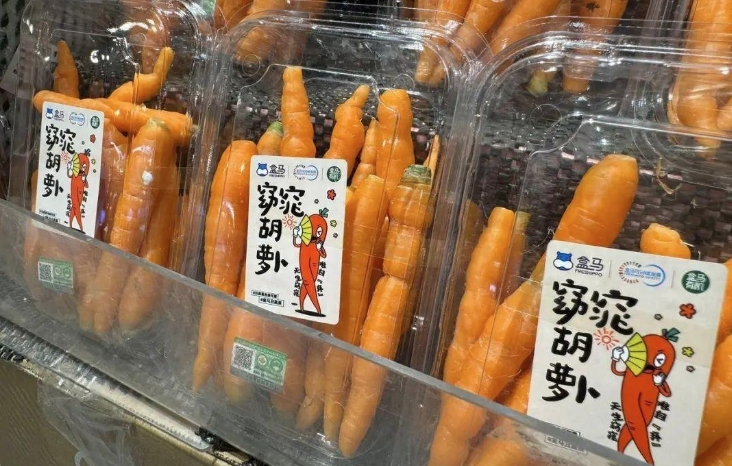Deformed vegetables favored by Chinese customers

Deformed carrots sold at supermarket. [Photo/Tidenews]
According to data from the United Nations Food and Agriculture Organization, approximately 14% of the world’s food is lost between harvest and retail each year, amounting to about $400 billion in value.
The United Nations Environment Programme estimates that 17% of food is wasted at the retail and consumption stages. A significant amount of this waste comes from vegetables discarded due to their appearance.
In June this year, the Chinese retail platform Freshippo introduced a series of “ugly but cute” vegetables in over 100 stores in Beijing, Shanghai, and Shenzhen. This range was later expanded to stores in Hangzhou and Qingdao.
“During our collaboration with suppliers, we found that a significant amount of vegetables with imperfect appearances were being wasted, especially root vegetables. Because they are grown underground, any deformity can’t be easily handled, resulting in deformed vegetables with poor market appeal,” said Mei Xuming, Director of Sustainable Development at Freshippo.
Nature grows vegetables in diverse ways, but due to the standardized selection process in the supply chain, deformed vegetables are rarely seen in urban supermarkets.
However, some of these vegetables are actually a result of nature’s creativity: forked carrots may have been blocked by a small stone as they grew; yams can curve and branch out when they encounter other plant vines; tomatoes on the edge of leaves may develop cracks due to increased sunlight exposure and temperature changes.
Despite their unattractive appearance, consumers are still willing to buy them. Mei said that in just two months, over 50,000 users have ordered the four types of “ugly vegetables.”
Customers commented, “I don’t mind the appearance as long as the vegetables aren’t damaged and can be stored properly,” “Deformed vegetables offer good value for money,” and “The unique appearance sparked our curiosity, and my daughter especially enjoyed trying new things.”
Source: Tidenews; trans-editing by Guo Yao








